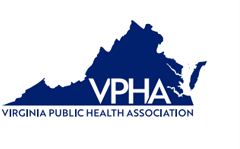Abstract
Introduction:
Community health workers (CHW) have been integral in helping middle- and low-income countries. This research paper discusses the benefits of the involvement of CHWs in health screenings.
Methods:
Health screenings were performed for three rural communities in Guatemala, in 2021, alongside a church in Zacapa, to identify community wide health risks. The screenings included a detailed questionnaire that collected demographic data, height and weight, a blood glucose check, a hemoglobin check, and a blood pressure reading. Additional nutritional data was collected to understand diet patterns and habits. In-depth educational sessions were done with the CHWs, emphasizing preventative care, and the teach-back method was used to verify the effectiveness of instruction.
Results:
Educational efforts were measured by accurate demonstrations and correct answers to questions at the end of the sessions. The results yielded 47% of the CHW’s displayed a correct return demonstration on the first try, 33% did on their second try, and 20% on their third.
Conclusion/Limitations/Recommendations:
Using the methods described above and the data collected on previous trips, the study allowed for health screenings and education, along with the resources to continue screenings independently. Some limitations of this study include participant age or previous illness, along with the missing data from the 2020 trip, which was postponed due to COVID-19. Recommendations include first-aid response training to combat the limited emergency medical services and additional studies to continually educate the communities in Guatemala.
Recommended Citation
Attin, Oswald M.; Castillo, Gineska; Sibert, Grace; and Harper, Andrea
(2023)
"Empowering Community Health Workers in Guatemala,"
Virginia Journal of Public Health: Vol. 8:
Iss.
1, Article 6.
Available at:
https://commons.lib.jmu.edu/vjph/vol8/iss1/6
Included in
Community Health and Preventive Medicine Commons, Public Health Education and Promotion Commons

